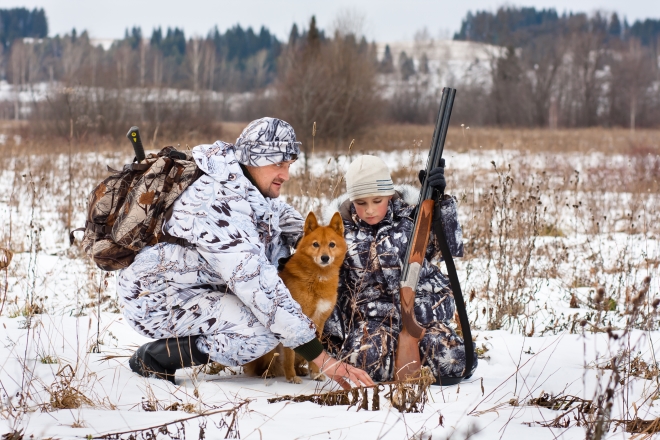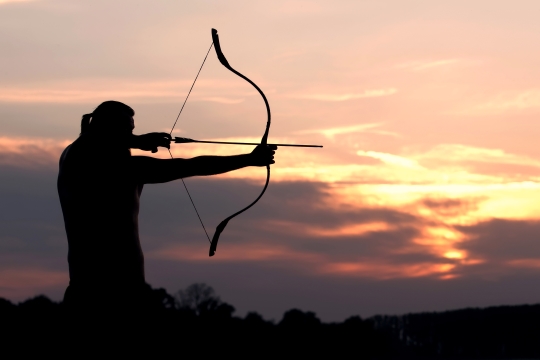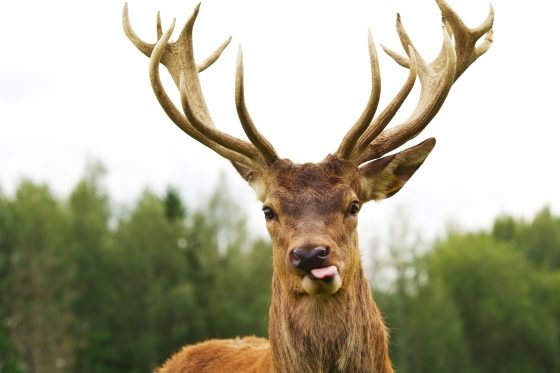This is the season any sportsman with a hunting license should be thinking about getting the next generation involved and give them a taste of what it’s like. Any hunter with a child or knows of a child with an interest in the sport should consider taking them with you for their first hunting experience.
Doing so will be an investment in the sport in general. Additionally, it will be highly rewarding for both the child and the sportsman taking the time to get them started.
Teaching is learning. The experience can change the way both of you approach the sport.
Here are some top tips for taking a youngster on your next hunting excursion. Any experienced hunter knows safety is paramount. It must be among the first things a young hunter should learn about.
When you teach your youngster’s about hunting it’s best if you remind them of the rules as you travel together out to the spot you plan to hunt. Your outing can be as much about learning the rules of safe hunting as it is about getting that first big takedown.
If everyone can follow the first two rules then the third rule will be taken care of.
The Three Rules
- Listen. Listen to the leader. Regardless of your relationship – dad, uncle or family friend, you are the leader and they need to listen.
- Safety. Safety first and always no matter what. Never get too excited, scared or distracted to not follow the rules of safety.
- Fun. Have fun. After all, if it isn’t fun then what’s the point?
Many adult hunters have their set ways of doing things. It’s important to remember when you’re taking a child it needs to be fun for them.
If everything is rigid then it won’t be so much fun for a child.
It’s important to give a youngster some space and to understand they are not yet as driven as you are.
If you allow them to go at their pace they will love the experience and want to do it again. For an experienced hunter, it might be reasonable to hunt in difficult weather as this can be some of the best times to get a great kill.
But for a child, hunting under those conditions when they are first starting out might be more stressful and less fun. By taking them in less than ideal hunting conditions you are subtly teaching them you should consider them first.
Going bow hunting during the early season or squirrel hunting in October are a couple of good times for a child to experience their first hunting trip. It’s important to remember they are not adults and inexperienced.
For this reason, they will fidget and make noises you would consider unnecessary. When possible try to use these times to focus their energies and help them learn something.
One such idea would be to look for local birds and see how many you and the youth can name together. If you bring along a tree book that helps identify trees, then you two can collect them and place the pine cones, leaves and other items found along the trail.
Children are easily vulnerable to distractions. A great way to get back their attention is with food.
Nearly everybody likes to eat and breaking bread is a great way to get closer to the child. A satisfied appetite helps everyone feel more content.
Afterward, you can get back to hunting. When planning the trip take your kid to the store or convenience store and let them pick out as many healthy snacks as possible.
Who knows, it might even become a ritual before the hunt. It’s easy to find ways to keep your kid involved the year round.
One example is when you are training your dog. Take your child with you and allow them the opportunity to experience it with you.
Let them give your dog some commands. Let them throw an item for the dog to fetch.
If you have cameras on the trail let them come with you when you check them. As you and your kid go through the pictures let them name any animal identified.
It’s also a good idea to get them involved with hunting blinds. If you choose this route here are some good hunting blind options. Obviously, hunting will not be for every child.
If yours or the one you thought of asking decides it is not something they are interested in, then that’s okay. When a parent or close friend of their parents are into an activity many children will become curious and take an interest in it.
If a parent or friend pushes too hard it could leave a negative impression of the sport. If the child is allowed to choose then even if they decide not to hunt they will likely remain open to the idea.
Hunting is one of those activities where you never stop learning. For example, huge bucks are wise in ways we are likely to never fully understand.
If I were to ever know it all it would likely take some of the fun out of the sport. Whenever you are taking children along you will find there’s an endless supply of learning opportunities.
Let everyone participate. One of the most rewarding parts of hunting with children is when you allow them equal opportunity to participate.
Whether it’s letting them get decoys from the bag or following deer tracks and even allowing them to decide where a good place to hunt will be. While we might happily sit in a tree from sun up to sun down most children cannot endure such an experience.
Keep these early hunting experiences short in duration. Make and keep it fun.
Don’t worry if everything is done up to expert status. Keep the activities interesting and let it go until they are a bit tired but before they are bored and exhausted.
This will keep them coming back for more.








